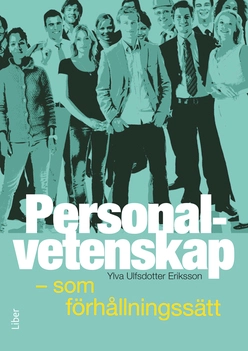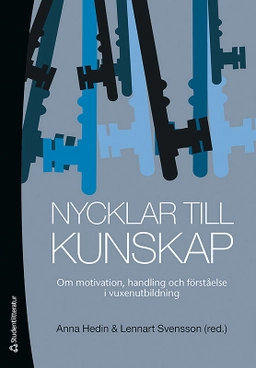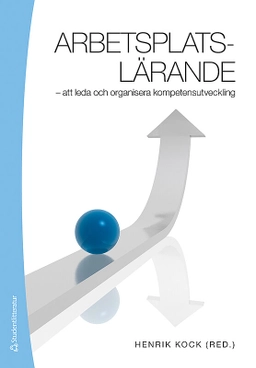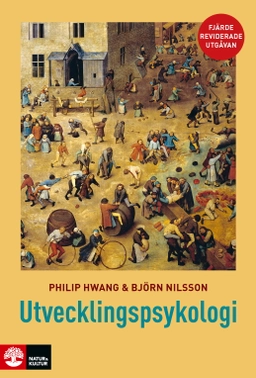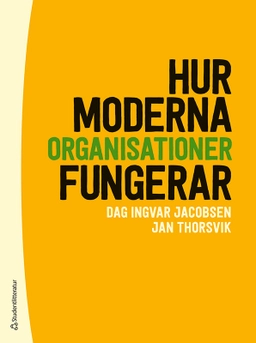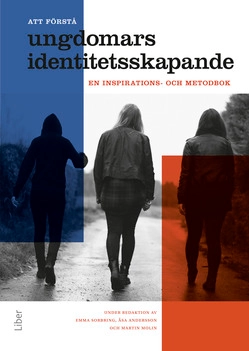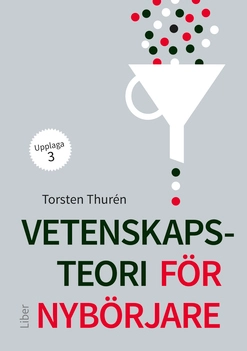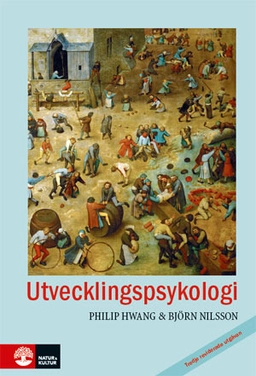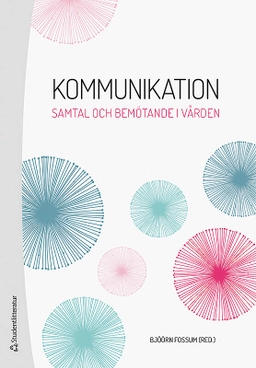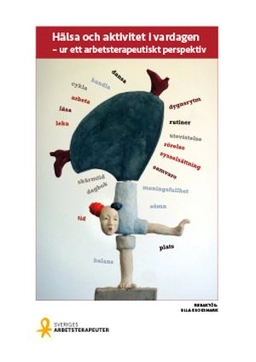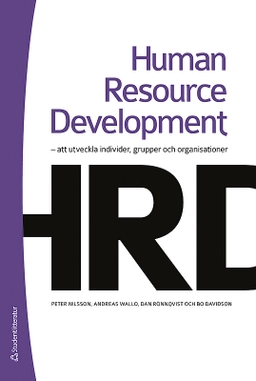Sociology is a constantly changing scientific endeavour, adventure and practice that was born with the advent of modernity. One of the main reasons for the rise of sociology was modern societys wish to understand itself. In this introduction to sociology, the authors emphasize the importance and centrality of the idea of the sociological imagination, as it was conceived by sociologist C. Wright Mills. This book will enhance and further develop your sociological imagination with a sensibility that has its breeding ground in the Scandinavian countries; this is the first comprehensive attempt to write an international/Nordic text book and introductory text to sociology. This book is aimed primarily at first year students in sociology but will be of interest to anyone who is looking for a comprehensive guide to the exciting field of sociology.
Contents
Introduction
The legacy of the sociological imagination
Scandinavian sensibility
Structure and content of the book
Summary
Think for yourself
Further reading
Chapter 1. What is society? Contested concepts and shifting metaphors
Willy Guneriussen, University of Tromsø
Introduction
Individualism vs holism: methodological and ontological controversies
Sociology – an explanatory or interpretive science?
Structure or action?
Society – a material or symbolic reality?
The symbolic turn
Combining distinctions
The theoretical landscape of sociology
Several theories – one reality?
Beyond traditions – towards a minimalist model of society
Biology and society
Combining traditions
The first synthesis: Talcott Parsons’ sociology
Modifying Parsons’ theory of society
Metaphors, science and sociological imagination
Metaphors
Changing conceptions or changing realities?
Concluding reflections
Summary
Think for yourself
Further reading
Chapter 2. The sociology of work
Inger Marie Hagen, Fafo
Introduction
The labour contract – labour as commodity in the market
From work to labour
Modern labour – work as commodity
The two parties to the contract: labour and managerial prerogative
The labour contract and the social context – different models
The collective agreement
Labour and self-expression
Working conditions
Other answers to `why work?’
Motivation and management
The work organisation
From command to self-management?
An example – the modern work organisation – the three different company systems
Employer and employee – equal partners
Management as superior to employees
Employee and management as parties in an ongoing dialogue
Working life and distribution – industrial democracy
Norms of distribution and norms of democracy
Three notions of industrial democracy
Industrial democracy and participation – individual and representative participation
The Nordic labour market
The Nordic model of labour relations
When contemporary labour is a part of the past . . .
Summary
Think for yourself
Further reading
Chapter 3. The sociology of power
Fredrik Engelstad, University of Oslo
Introduction
The interpretation of `power’
Power as concept
Dimensions in social action
Expectations and legitimacy
From micro to macro
State, democracy, politics
State, rights and informal power relations
Shaping and articulation of interests
Political participation on a broad scale
Fragmentation and globalisation: abdication of politics?
Civil society
Networks and organising capacity
Gender power and attitudes toward gender
Encounters with welfare state institutions
Economy and working life
Business life, markets and power
Management and leadership in enterprises
Participation and industrial democracy
Ideas and communication
Power in the public sphere
Aesthetics, culture and national values
Social elites: who governs?
Power and democratisation
Summary
Think for yourself
Further reading
Chapter 4. The sociology of the family
Mai Heide Ottosen, The Danish National Centre for Social Research
Introduction
What is a family?
Sociological perspectives on the family
Kinship vs family studies
The family as a social institution
The family as a social group
Family as social practice
Demographic trends
The `bean-pole’ family
The crisis of the patriarchal family
Structuring family networks
Family policies
Inside the family: marriage, parenthood and childhood
The de-institutionalisation of marriage
From fatherhood and motherhood to parenthood
Childhood
Summary
Think for yourself
Further reading
Chapter 5. The sociology of education
Nihad Bunar and Rickard Jonsson, Stockholm University
Introduction
Sociological perspectives on education
The functionalist approach
Education and socialisation
Social integration
Education and gatekeeping: screening and selecting
Education as an agent of social change
The conflict approach
The correspondence principle
Reproduction through expectations and opposition
Subjective expectation of objective probability
Restricted and elaborated codes
The subjective-interpretative approach
Education and the market
The market-oriented position
The market-sceptical position
The market-ambivalent position
Education and ethnicity
Urban schools
Refugee and migrant students
Education and gender
Gender and school achievement
Summary
Think for yourself
Further reading
Chapter 6. The sociology of religion
Ola Sigurdson, University of Gothenburg
Introduction
What is the sociology of religion?
Sociology, the secularisation thesis and the return of religion
Religion in the Scandinavian nation-states: an example
The continuities and discontinuities of secularised religion
The future of religion: towards a post-secular society?
Summary
Think for yourself
Further reading
Chapter 7. The sociology of media and information technologies
Simon Lindgren, UmeS University
Introduction
Constructions and representations
The media `effects’ model
Media, ideology and struggles over hegemony
New media and participatory culture
Summary
Think for yourself
Further reading
Chapter 8. The sociology of health
Thomas Johansson, University of Gothenburg
Introduction
Historical perspectives
Health inequalities
Gender and health
Lifestyles, risks and health
The face of health
Global health
Summary
Think for yourself
Further reading
Chapter 9. The sociology of class and social stratification
Gunnar C. Aakvaag, University of Oslo
Introduction
Marx’s definition of class
The class structure of modern capitalism
Max Weber: a multidimensional approach to stratification and class
Weber’s general approach to social stratification: class, status and party
Weber’s class theory
Contemporary class analysis
A neo-Marxian approach: Erik Olin Wright and exploitation
Wright’s class schema
A neo-Weberian approach: John H. Goldthorpe and life chances
Service and labour contracts
Goldthorpe’s class schema
Pierre Bourdieu: classes and lifestyles
The social space
Bourdieu’s class schema
Habitus and class
Class, habitus and lifestyle
Class and social mobility
Social relationships
Intergenerational mobility
Summary
Think for yourself
Further reading
Chapter 10. The sociology of deviance
Philip Lalander, Malmö University
Introduction
Labelling, ambivalence and counter-labelling
Different types of deviance
Diagnosis and identity
Indulgence at the margins of society
Escape from everyday life/escaping everyday life
Summary
Think for yourself
Further reading
Chapter 11. The sociology of gender
Johanna Esseveld and Sara Eldén, Lund University
Introduction
Gender and sex
Beyond dichotomies
A sociological definition of gender
Theorising gender
Classical texts
Men’s and women’s roles
Gender oppression and structural inequality
New themes in the sociology of gender
Gender as a social practice
Intersectionality
Scandinavian sociology of gender today
Conclusions
Summary
Think for yourself
Further reading
Chapter 12. The sociology of micro-social interaction and everyday life
Søren Kristiansen and Michael Hviid Jacobsen, Aalborg University
Introduction
Everyday life as a social domain
Micro-social interaction
The basis of micro-social interaction: common sense, meaning and intersubjectivity
Phenomenological sociology
Symbolic interactionism
Ethnomethodology
The syntax of interaction: rules, rituals and ceremonies
Goffman and dramaturgical sociology
Conversation analysis
Summary
Think for yourself
Further reading
Chapter 13. The sociology of globalisation
Thomas Hylland Eriksen, University of Oslo
Introduction
Origins of contemporary globalisation
Globalisation today
Globalisers and sceptics
Dimensions of globalisation
Disembedding, including de-localisation
Standardisation
Interconnectedness
Mobility
Mixing
Vulnerability
Re-embedding
Central questions about globalisation
The dialectics of globalisation
Summary
Think for yourself
Further reading
Chapter 14. The sociology of culture
Bjorn Schiermer, University of Copenhagen
Introduction
Sociology of culture and popular culture
The Frankfurt School: the critique and the potential of modern mass culture
Siegfried Kracauer: the dialectics of commodified culture
Theodor W. Adorno: the critical potential of autonomous art
Walter Benjamin: art and politics
The Birmingham School: culture as `a way of life’
Poststructuralism and semiotics: culture as `text’
The `material turn’: re-extending the shortened concept of culture
Cultural studies: leaving the high/low dichotomy behind
Ironic sensibilities: kitsch and camp and new ways of being together
Summary
Think for yourself
Further reading
Chapter 15. The sociology of ethnicity
Nihad Bunar and Marko Valenta, Stockholm University and NTNU
Introduction
Defining ethnicity
Theoretical approaches to ethnicity
Primordialism
Instrumentalism
New ethnicities
The importance of ethnic networks
Symbolic ethnicity
Theories and policies for managing ethnic diversity
Ethnicity and other sociologically relevant concepts of categorisation
Ethnicity and class
Ethnicity and gender
Ethnicity and race
Ethnicity, racism and discrimination
Ethnicity and nation
Ethnicity and citizenship
Summary
Think for yourself
Further reading
Chapter 16. The sociology of the self
Thomas Johansson, University of Gothenburg
Introduction
The sociology of the body: classical texts
Consuming the Other
Cyborgs and transvestites
Lifestyle, fashion and the body
Bodybuilding, fitness and gender
Plastic surgery and body modifications
Summary
Think for yourself
Further reading
Chapter 17. The sociology of social change
Gunnar C. Aakvaag, University of Oslo
Introduction
What are the `general characteristics’ of a society?
Functional differentiation
Consequences for the individual: facing social complexity
Institutional `colonisation’
Consequences for the individual: facing commercialisation and bureaucratisation
Individualisation
Industrial modernity
Individualised modernity
Consequences for the individual: facing the decline of standard biographies
Risk society
Objective side-effects
Subjective perception
Consequences for the individual: facing uncertainty
Social change: all that is solid melts into air?
Summary
Think for yourself
Further reading
Notes
References
Index
Åtkomstkoder och digitalt tilläggsmaterial garanteras inte med begagnade böcker


